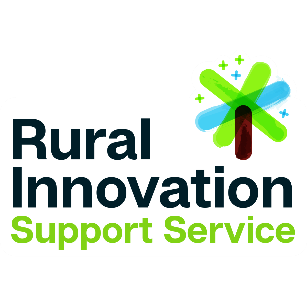
We are delighted that Megan Welford, Farming and Land Use Communications Manager, Rural Innovation Support Service (RISS), can tell us about this new service. RISS is getting the right people together to make a difference to rural businesses across Scotland and they’d like even more researchers to help by sharing their expertise.
By Megan Welford, RISS
The Rural Innovation Support Service (RISS) launched in February 2018, with the aim of enabling farmers, foresters and crofters in Scotland to explore their innovative ideas through collaboration. RISS is funded by the European and Scottish Rural Development Programmes.
The way RISS works is a farmer, forester or crofter (as an individual or in a group), has an idea or a problem they’d like to explore. They get in touch with Soil Association Scotland, who co-ordinate RISS, and we (alongside our partners; SAOS, SAC Consulting and Innovative Farmers) find the right person (facilitator) to coordinate the project. Alternatively, if you know of a farmer who would benefit, you can also suggest a project on their behalf.
The facilitator then forms a working group around the farmer, forester or crofter, bringing in members from any appropriate sector, including research. The facilitator helps the group to work together to test options and come up with a robust project plan. The group can then use the plan to get started or apply for funding.
Connecting with a working group could be useful to a researcher and help their own work, in which case researchers can become an active group member who helps to develop the plan. If you are interested but don’t wish to become fully involved or simply can’t spare too much time though, don’t worry, other options are also possible. You can still share your expertise and make a difference, by speaking at a group meeting, or simply by making your research available to the facilitator.
Current RISS groups are looking at liver fluke in sheep (Dr Philip Skuce, SEFARI and Moredun, is planning to help), building a mobile abattoir, better marketing hill sheep, creating a dairy labour pool, reducing single-use plastics on farm and harnessing dairy genetics to speed up breeding; but more projects are initiated all the time so do keep checking for them even if you can’t help right now.
The ‘Speeding Up Dairy Breeding’ group also have a SEFARI researcher in their team: Professor Mike Coffey, SRUC. Mike is helping three grass-based dairy farmers (pictured) devise a breeding programme to combine herd data with genomic testing to rank the cows (the dams rather than the bulls) then use reproductive technologies to more quickly get a herd of the best cows. If you are interested, you can learn more about the project and watch a short film here.
If you have any questions, would like to know more, receive our regular updates or to get involved please contact RISS or info@sefari.scot anytime, we’d love to hear from you.